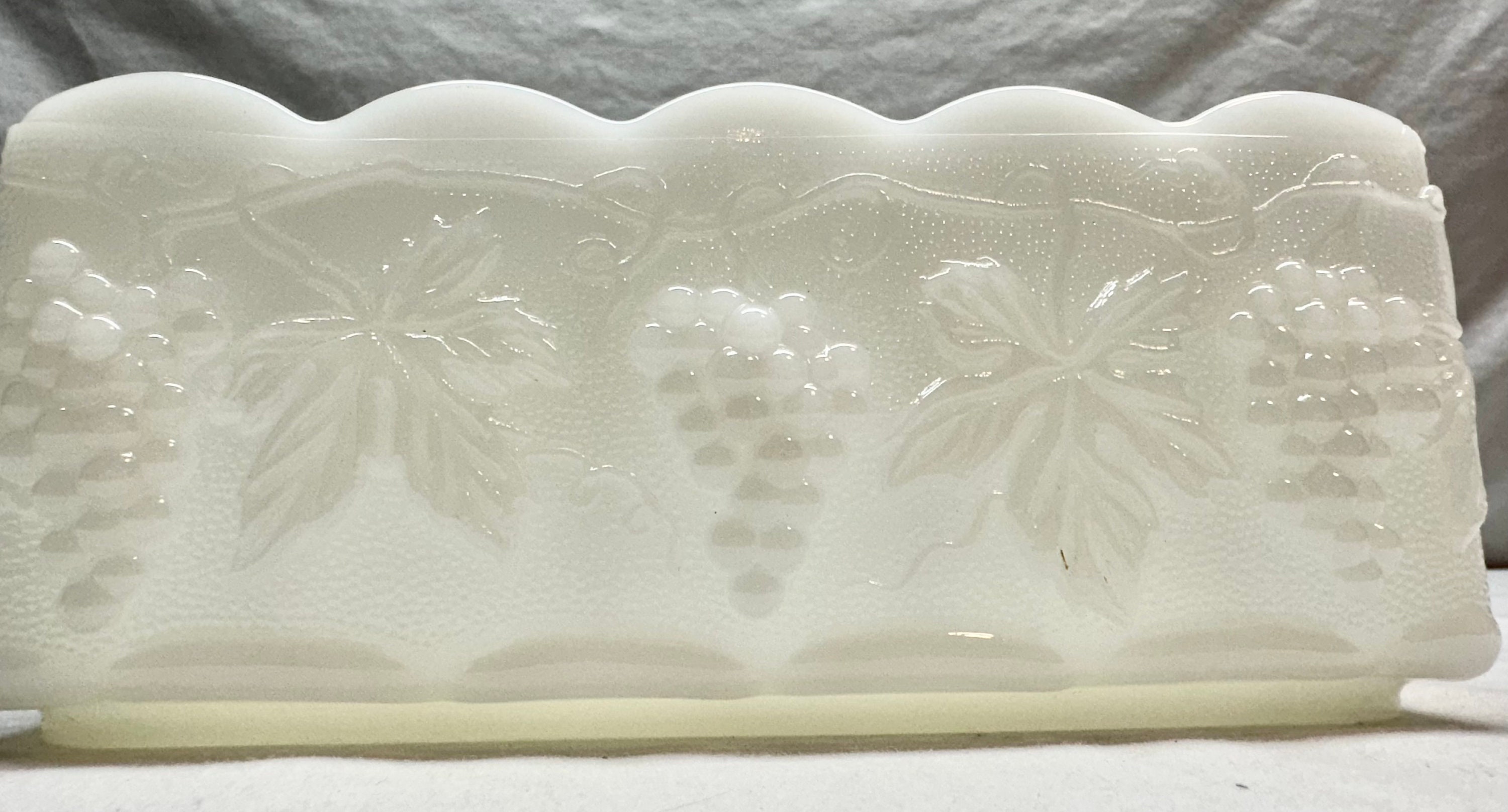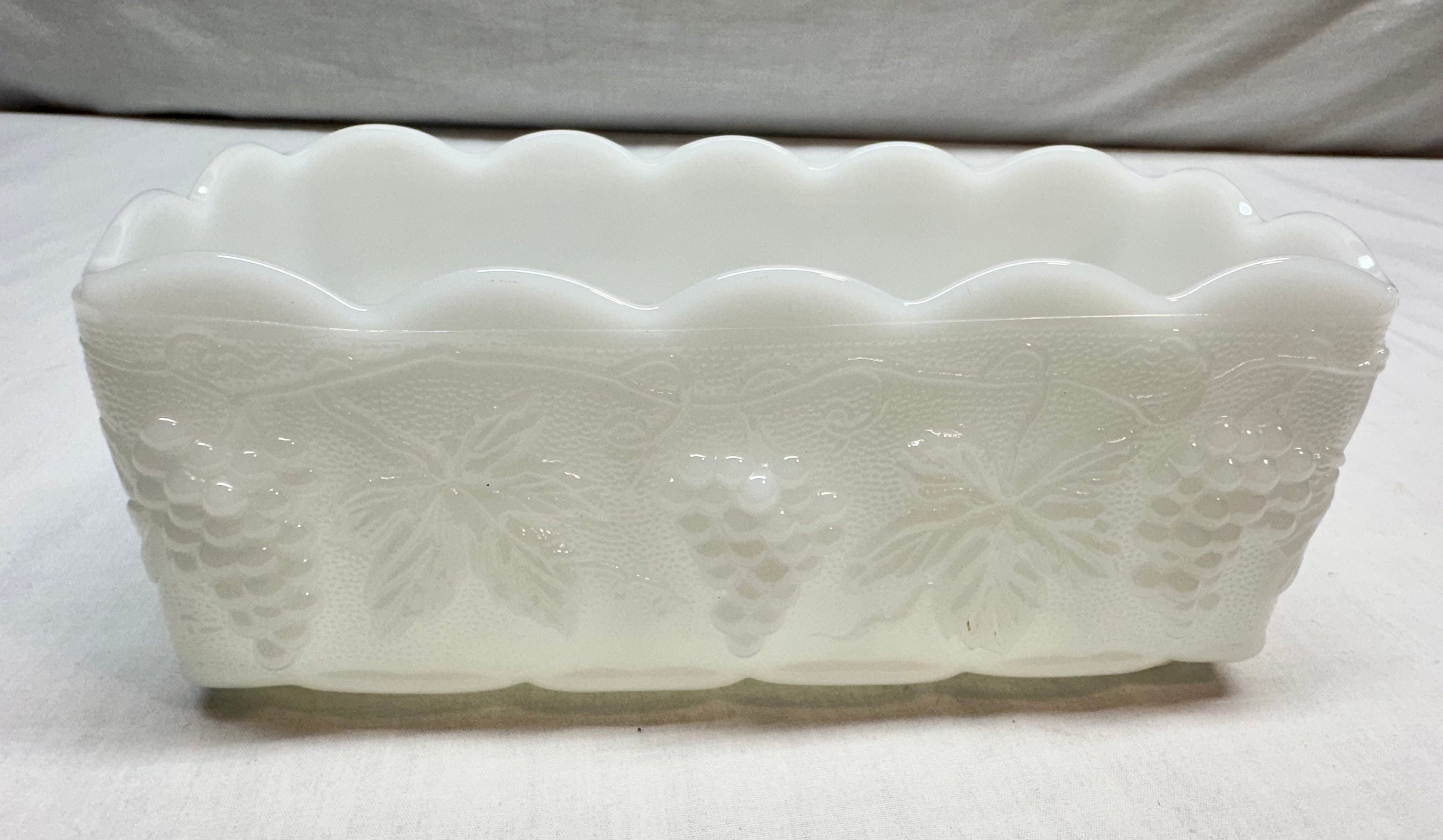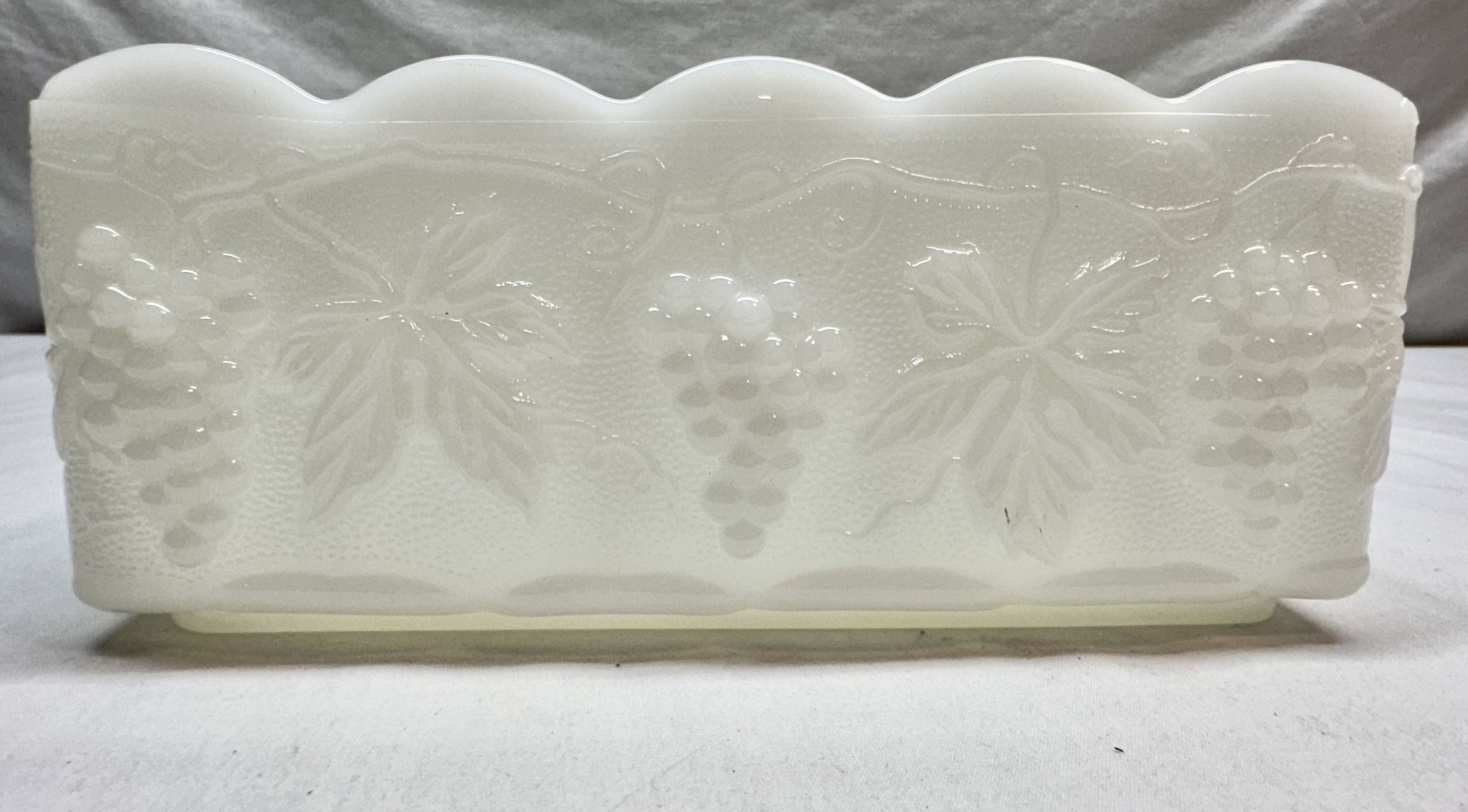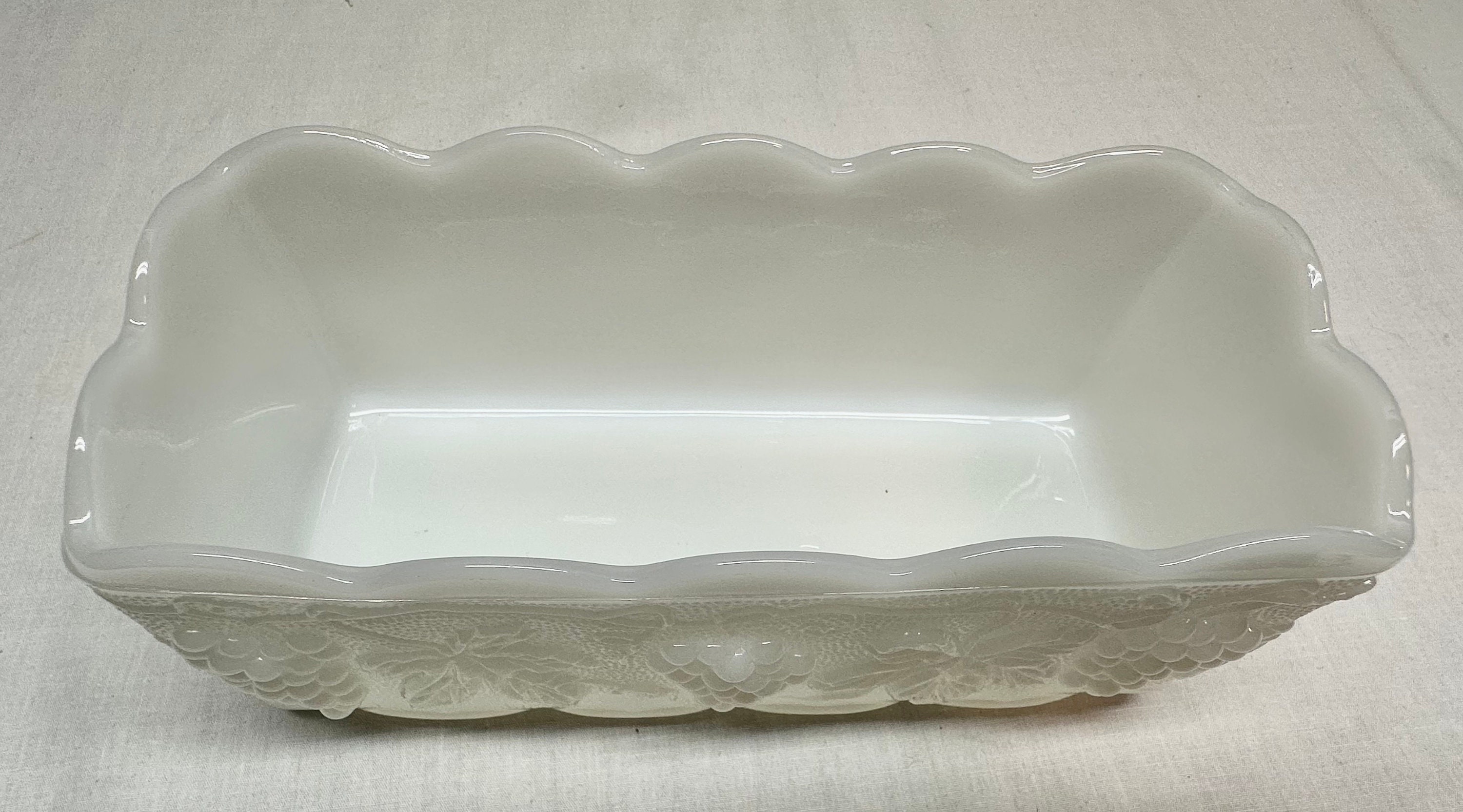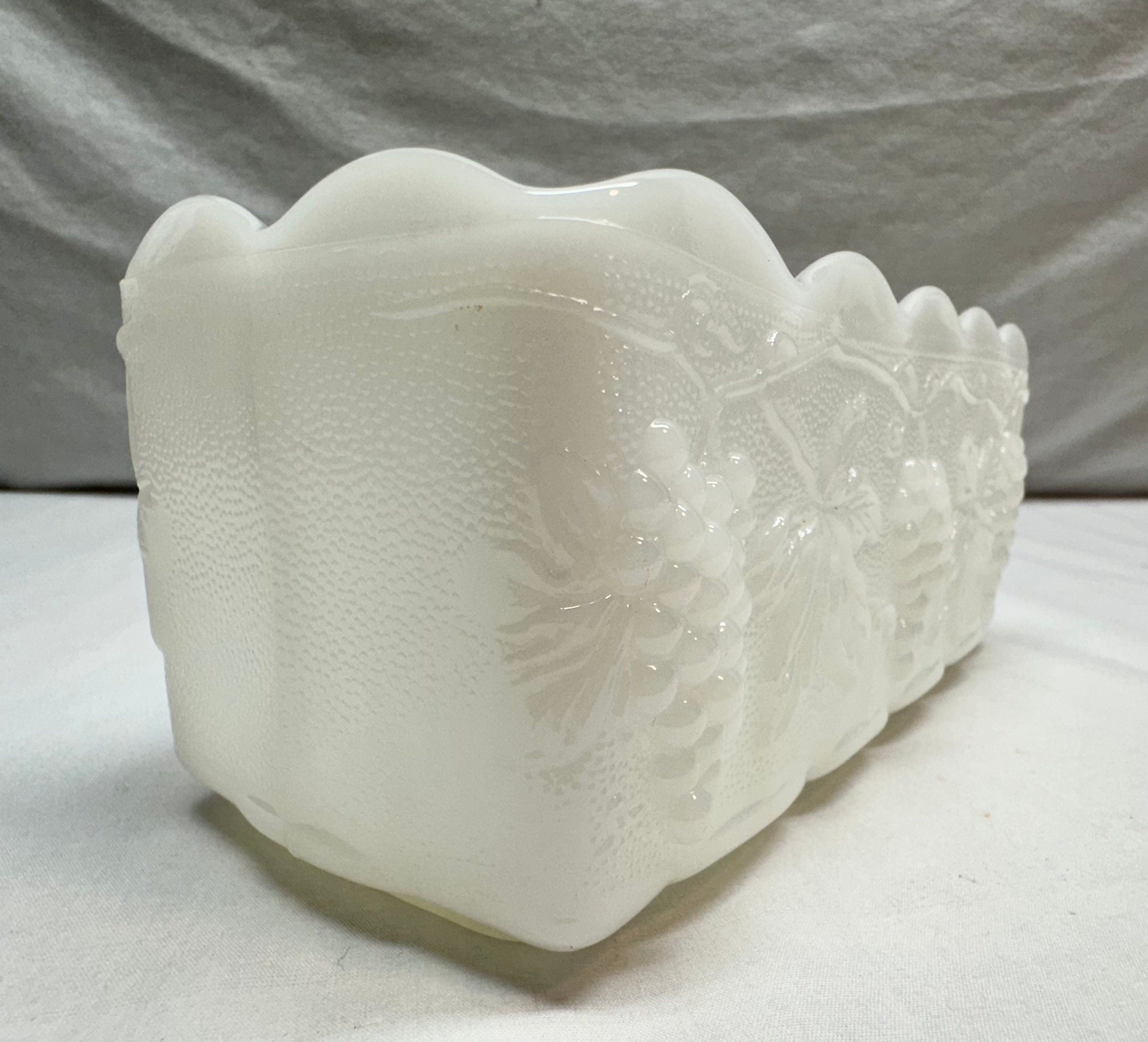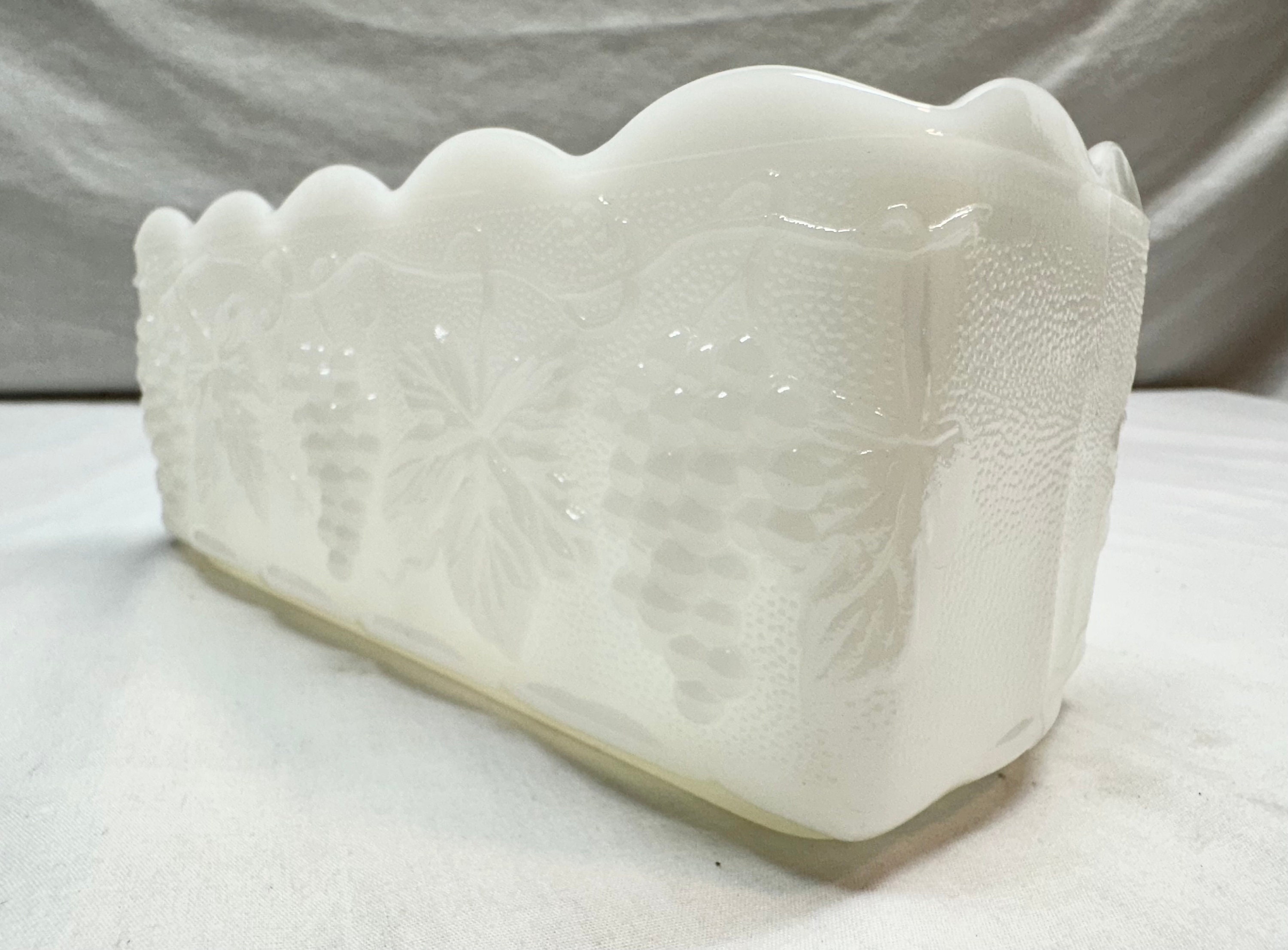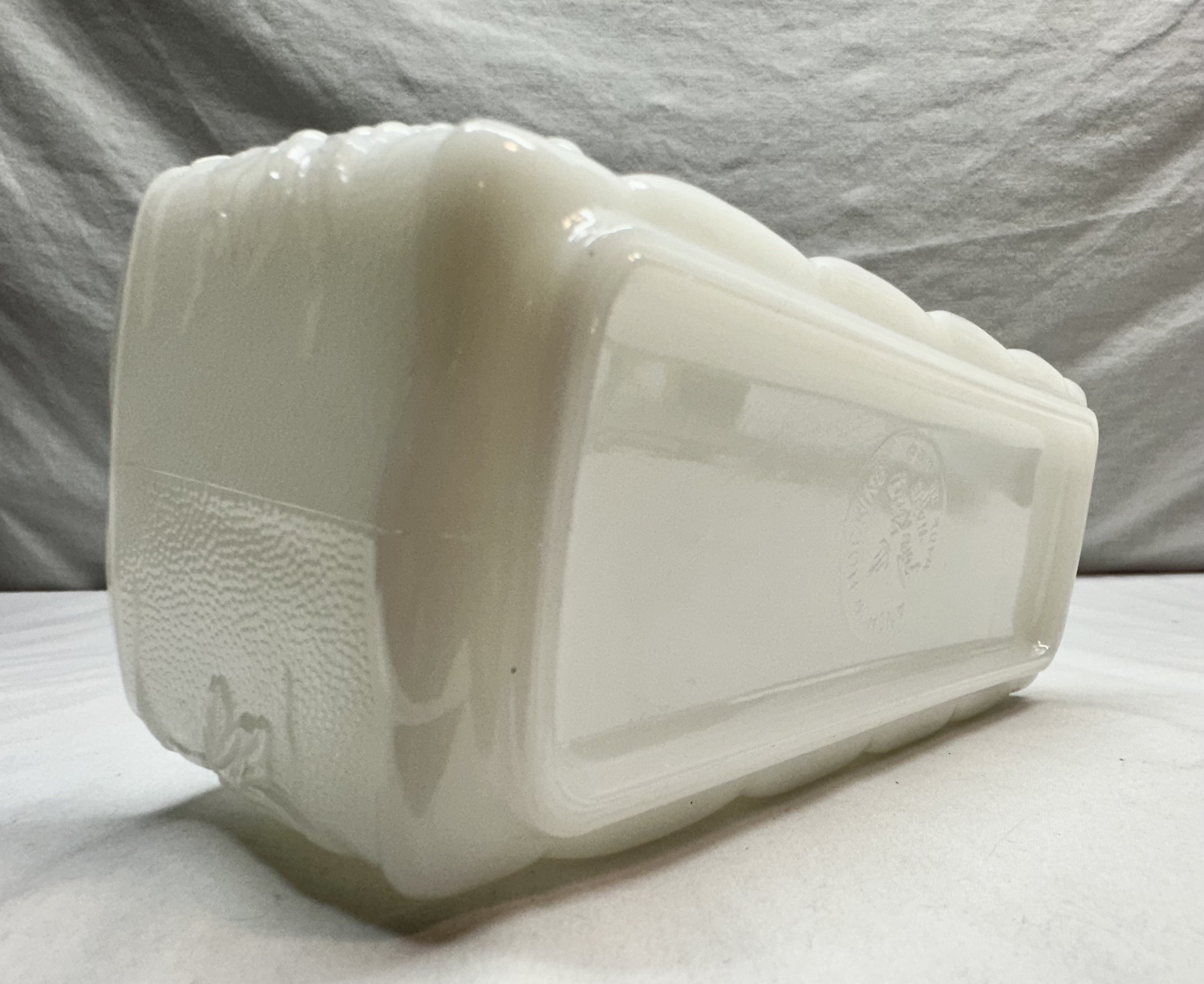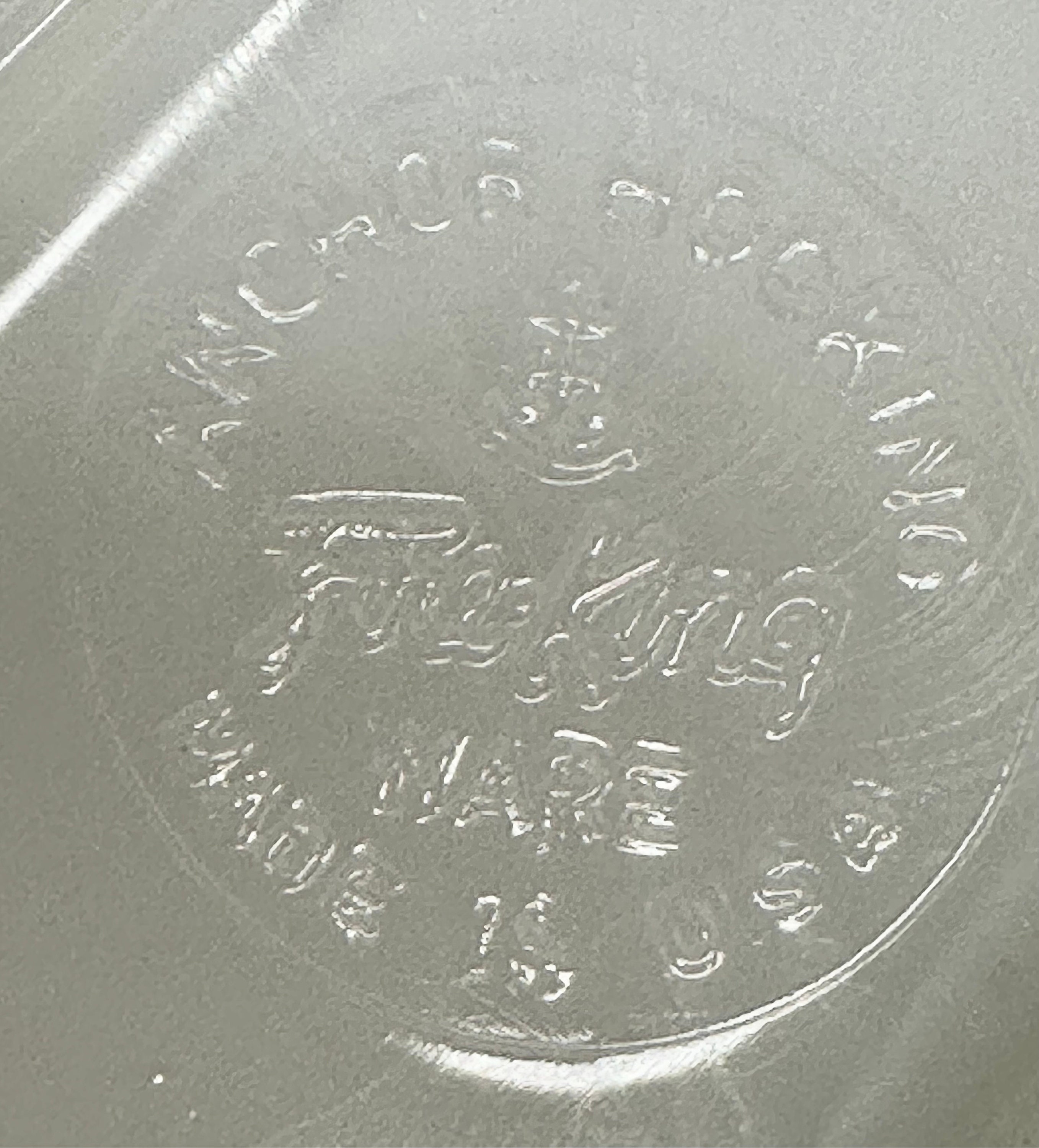Vintage Anchor Hocking Fire King White Milk Glass Rectangular Planter with Grapevines and Leaves
$28.00
This vintage white milk glass planter was made by Anchor Hocking- Fire King Ware.
It is rectangular in shape with ruffled edges and a raised harvest grapevine and leaves pattern
It has no chips or cracks and measures 3 1/4" tall x 7 3/4" x 3 1/4"
Fire-King was originally produced in the 1940s for everyday use, rather than display. It was often sold in bags of flour as a promotional item or was given away at gas stations. Fire-King could also be purchased at local grocery and hardware stores. Several varieties of Fire King dishes were made. The vintage nesting bowls, produced by the Anchor Hocking Company, are one of the most sought after collectible dishes of this type.
The Fire-King line includes bowls, casseroles, cups, plates, serving platters, creamers, vases and more.
Milk glass, also known as "opal glass," has been around since the 16th century, but the term "milk glass" was coined in the 20th century to describe the opaque plates, goblets, serving items, and decorative glassware objects that became popular in the late 1880s. Unlike typical glass, milk glass scatters light by the Tyndall effect, making some opal glass appear bluish from the side and reddish-orangeish in the pass-through light.
Made into decorative dinnerware, lamps, vases, and costume jewellery, milk glass was highly popular during the fin de siècle. Pieces made for the wealthy of the Gilded Age are known for their delicacy and beauty in color and design, while Depression glass pieces of the 1930s and 1940s are less so.
Opaque Glass originated in 16th century Venice and came in a variety of colors, including white, pink, yellow, blue, and brown. The white variety beloved today rose to prominence during the Victorian era, when
it was coveted as an economic dead-ringer for porcelain. (The Victorians also get credit for coining the term "milk glass.") Its production and popularity waned during the Great Depression but saw a resurgence after World War II. Thanks to a frenzy of mass production during the 1950s and 1960s from companies such as Anchor Hocking, Fenton, and Westmoreland, the mid-century finds are readily available today—many for mere milk money.
To make this type of glass, opacifiers like bone ash, or tin dioxide and arsenic and antimony compounds are added to the glass-melt mix. White glass not produced in this manner is not considered real milk glass. True to its name, "milk glass" is generally milky white, but it may also be blue, pink, yellow, brown, or black. Milk or opal glass tends to be ornate and whimsical in decoration, while other types of white glassware are often utilitarian.
Shipping from United States
Processing time
1-3 business days
Estimated shipping times
- United States : 2 - 3 business days
I'll do my best to meet these shipping estimates, but can't guarantee them. Actual delivery time will depend on the shipping method you choose.
Customs and import taxes
Buyers are responsible for any customs and import taxes that may apply. I'm not responsible for delays due to customs.
Payment Options
Returns & Exchanges
I gladly accept cancellations
Frequently Asked Questions
Are these new items?
All items in my shop are vintage and antique meaning previously owned, loved and used.
I will disclose any condition issues to the best of my ability in the item description and ask that you review pictures and description prior to purchase.
Please contact me - I'll be happy to clarify and answer any questions.
Do you accept returns?
I do not accept returns or apply refunds
Please review item description and pictures prior to purchase or contact me with any questions
I’ll gladly provide any additional
information
If it is agreed upon between the seller and buyer that an item will be returned,it is the responsibility of the buyer to pay for return shipping. Once the item is received to the seller a refund of the purchase price only will be applied to the buyers account.
I ship quickly -1-3 business days-so I will only except a cancellation within 24 hours of purchase since I will be preparing the item for shipment in order to expedite your purchase
Why are shipping costs so high?
The shipping cost is determined by the postal service which is described below Due to the various sizes and weights of the items in my shop I unfortunately cannot offer free shipping
I utilize the USPS for shipping all packages and have found them to be the most economical and reliable
USPS has discontinued Regional Rate Box prices. This means that this mail class is no longer available
USPS uses Cubic Pricing rates which are determined by package dimensions and distance traveled instead of weight
